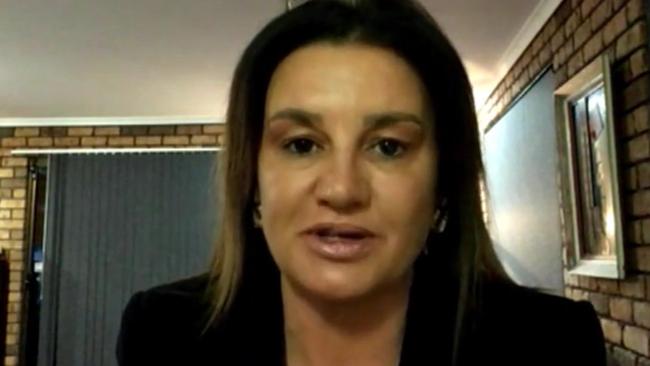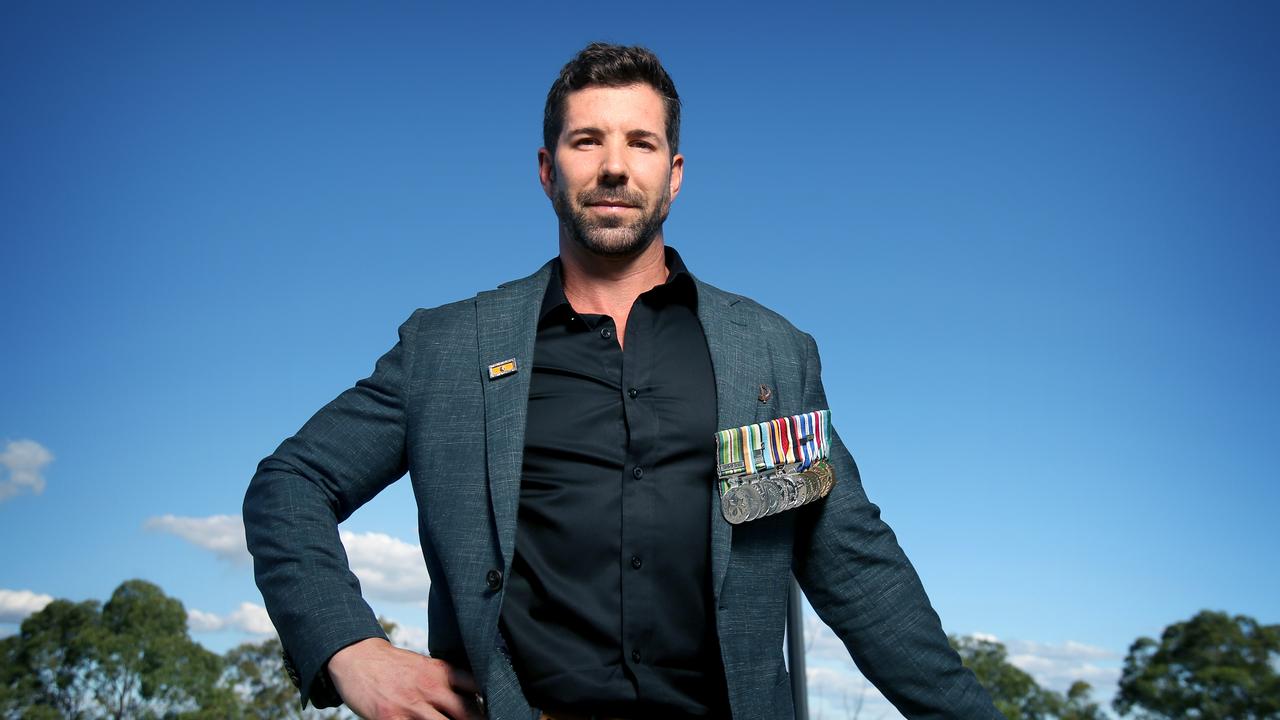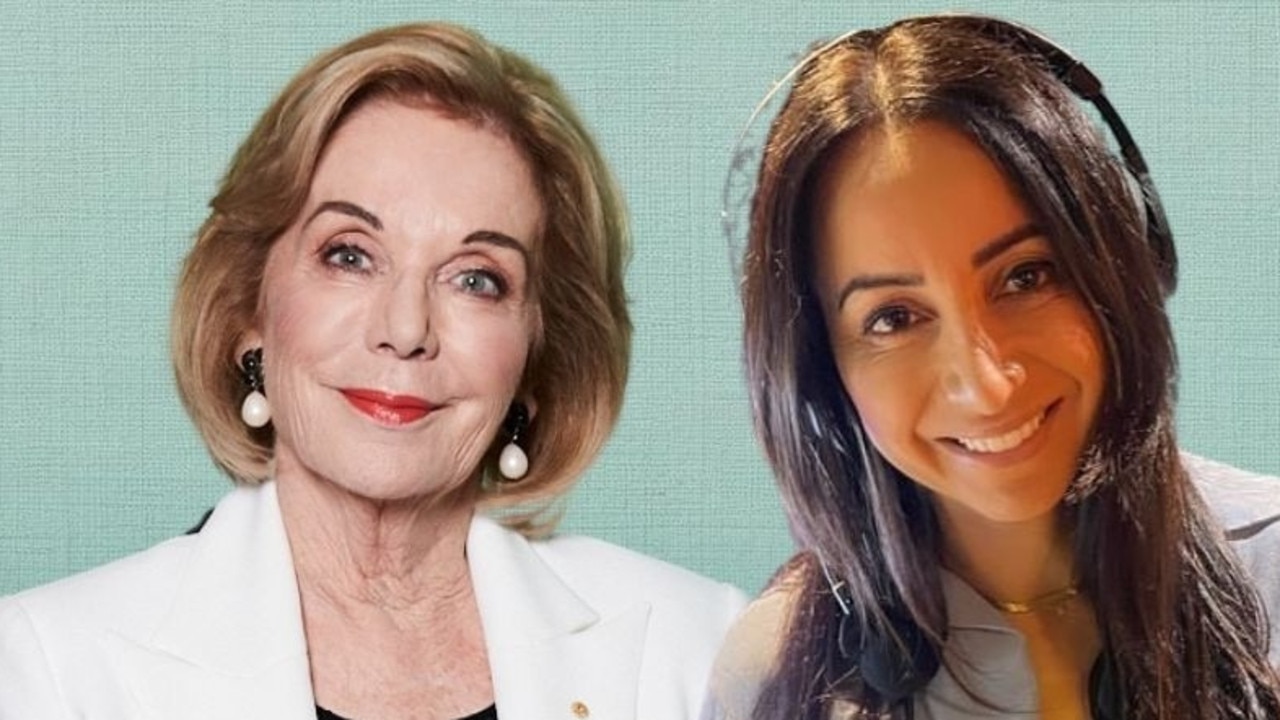ABC TV’s Q&A: how to survive the coronavirus lockdown
The challenges Australians are now facing while surviving enforced lockdown was the centre of Monday night’s program.

The challenges Australians are now facing while surviving enforced lockdown was the centre of discussion between the panellists on ABC’s Q&A program on Monday night.
National Mental Health Commission chief executive Christine Morgan tackled the issues of mental health and family violence being exacerbated by social-distancing measures by arguing the necessity of reminding those in need that help in the form of hotlines and services lines are available.
However, host Hamish Macdonald questioned whether these are sufficient, particularly for those who may not have access to technology or a link to support groups.
“It’s not enough,” Ms Morgan responded.
“This is why I think the biggest thing we can do is be alert. All of these women, and all of these children, do live in communities. We can hear loud voices, we can see concerns. So we have to do what we can to strengthen them and encourage them and make it part of our conversation.”
Refugee advocate and former Socceroo Craig Foster jumped in on the discussion saying the inequalities of issues amplified through the coronavirus crisis, like domestic violence, are creating the opportunity for sectors to call for a boost in funds.
“When it comes to domestic violence, it’s one of those issues that are being amplified through this pandemic – that is the lack of funding though some of these types of services,” Mr Foster said.
“So it’s actually also an opportunity for your sector to come forward right now and make this an opportunity to talk about what is necessary, what is needed.”
Broadcaster and comedian Julie McCrossin said she is “deeply disturbed” bottle shops are being called an essential service when access to alcohol is often a trigger for domestic violence. She argued access to personal protective gear for police and non-government services in local communities to allow them to enter a private home is “absolutely essential”.
“We cannot leave women and children alone in homes where perpetrators can think ‘no one can get in here because they’re too afraid to come in because they might get the virus’,” she said.
“Children and women cannot be considered safe unless people can come into the home and give them the opportunity to let people know what’s happening. And so, access to protective gear is absolutely crucial.”
The discussion turned to the issue of people living alone during lockdown who are looking at enduring six-months without having any physical contact with another person.
Food writer and author Matt Preston said the message that comes of the situation is there will be those who will struggle, and those who will strive and “deal with it”.
“If you are feeling you are coping with it, it’s your responsibility to reach out to those people, to talk to them regularly,” he said.
“It’s a long time to be left alone with your phone and all those messages of depression.”
Tasmanian independent senator Jacqui Lambie led the following debate on whether tougher lockdown measures should be put in place to reduce the spread of infection. Senator Lambie said she thinks “we’re beyond” ramping up restrictions, particularly in Tasmania, and doubts if any rural area in Australia is prepared for the pandemic.
“The (Tasmanian) Premier had no other option but to go in hard, go in fast, so we can get out of this as quickly as possible,” she said.
“There was no other plan. There is no plan B. Unless you want herd immunity which obviously isn’t working.”
Former deputy prime minister and Nationals leader John Anderson tackled the next question on whether Australia will find a way forward that enables it to pay off the huge debt that it has suddenly amassed.
“We will have to pull together in a way that we haven’t before. We will not get the good policy that we need to extract ourselves from this mess without a high quality debate,” he said.
“Out of this, we will have a huge debt load that will have to be dealt with, and we’ll have to do it with equity in mind.
“There’s some good writing coming out now, there’s some good debates, good discussion, about what this country looks like on the other side of this, both economically and in terms of community. People are realising we’ve got to live cooperatively with one another. That’s the silver lining to this cloud.”
Mr Foster echoed a point made earlier of asking Australians to reach out to people during this time, especially the cohorts of people who have been doing it tough for decades, a point Ms Morgan agreed was “critical”.
“We are more than just the economy,” she said.
“We are human beings living in a society. We have a moment where we can stop, we can pause and we can say what values we want to take forward.”
The host then asked Mr Foster if there is a moral obligation as a society to do more for those in the prison system and if they should be granted shorter sentences to alleviate the health crisis.
“If there is a public health issue and a personal safety issue for these people, and there’s no major health or security issues for them, of course they should be released,” he said.
Mr Forster also addressed the issue of asylum-seekers and refugees, saying they should be released “immediately”, slamming the “horrendous” way Australia has treated asylum-seekers and refugees in the last decade.
“It’s been deeply politicised,” he said.
“And Australia has turned ourselves in contortions in order to provide these people – human beings – with their basic human rights. That is, they have the right to seek asylum. And we can’t breach the rights of these people and then go preaching to China around their human rights, whether it’s with this pandemic or otherwise. We have to have a basic benchmark, a threshold, beneath which we will not descend.”
Author and former teacher Gabbie Stroud discussed ways parents can keep their school-aged children engaged and motivated through the challenges that arise from learning from home while balancing working remotely themselves.
“No one is actually expecting parents to teach their child as a teacher would in a classroom,” Ms Stroud said.
“We know mistakes are going to be made. We know kids are going to miss out on essential learning that should have been covered this year. We know there’s going to be a disruption to learning.”
However, Ms Stroud assured the audience and her fellow panellists that kids are learning what matters during the crisis which has otherwise severely impacted their daily routines.
“Look for opportunities around the home where they can educate your child, and just be with them at this time,” she said.
“Help them get through this. What our kids are actually learning right now is how we deal with a crisis and that is a massive life skill.”
Mr Preston added how “amazing” it is that the vast majority of Australians have willingly adopted “a total surrender” of things that were considered essential rights less than a month ago.
However, Mr Foster said human rights organisations are “raising the alarm” in order to make sure that underlying human rights are being protected.
“I think it’s actually important right now to ensure we have our rights fully protected, and that means – as many have said here tonight – everyone,” he said.
“Let’s make sure that they’re part of that discussion on the other side – everyone is going to be able to have a fair opportunity.”



